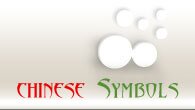|
Traditional Chinese Medicine : Introduction
The basic theories of traditional Chinese medicine describe the physiology and pathology of the human body, disease etiology, diagnosis, and differentiation of symptom-complexes. This includes the theories of Yin-Yang, Five Elements, zang-fu, channels-collaterals, qi, blood, body fluid, methods of diagnosis, and differentiation of symptom-complexes.
Traditional Chinese medical theories possess two outstanding features, their holistic point of view, and their application of treatment according to the differentiation of symptom-complexes. According to these traditional viewpoints, the zang-fu organs are the core of the human body as an organic entity in which tissues and sense organs are connected through a network of channels and collaterals. This concept is applied extensively to physiology, pathology, diagnosis, and treatment.
The functional physiological activities of the zang-fu organs are dissimilar, but they work in coordination. There exists an organic connection between the organs and their related tissues. Pathologically, a dysfunction of the zang-fu organs may be reflected on the body surface through the channels and their collaterals. At the same time, diseases of body surface tissues may also affect their related zang or fu organs. Affected zang or fu organs may also influence each other through internal connections. Traditional Chinese medical treatment consists of regulating the functions of the zang-fu organs in order to correct pathological changes. With acupuncture, treatment is accomplished by stimulating certain areas of the external body.
Not only is the human body an organic whole, but it is also a unified entity within nature, so changes in the natural environment may directly or indirectly affect it. For example, changes of the four seasons, and the alternations of day and night may change the functional condition of the human body, while various geographical environments can influence differences in body constitution, and so on. These factors must be considered when diagnosis and treatment are given. The principles of treatment are expected to accord with the different seasons and environments.
Application of treatment according to the differentiation of syndromes is another characteristic of traditional Chinese medicine. "Differentiation of syndromes" means to analyze the disease condition in order to know its essentials, to identify the causative facts, the location and nature, and to obtain conclusions about the confrontation between pathogenic and antipathogenic factors. In traditional Chinese medicine, differentiation performed to outline the specific principles and methods of treatment because similar diseases may have different clinical manifestations, while different diseases may share the same syndromes. Treatment in traditional Chinese medicine stresses the differences of syndromes, but not the differences of diseases. Therefore different treatments for the same disease exist and different diseases can be treated by the same method.
|
